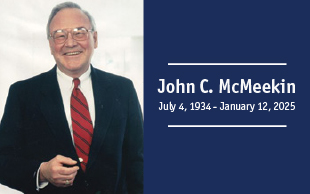Shawana Mitchell, Environmental Health & Safety Programs coordinator for PHMC affiliate National Nursing Centers Consortium, knew where to go when she learned that her 15-year-old niece was pregnant. “I talked about it with my niece’s mother,” says Mitchell, “and we enrolled my niece in Nurse-Family Partnership (NFP).” NFP, a national nonprofit organization that provides first-time, low-income mothers with a public health nurse home visiting program, serves more than 20,000 families in 20 states. In the city of Philadelphia, which has the highest rate of first-time newborns in Pennsylvania, NFP serves 400 mothers and their first-borns. Each pregnant mother meets weekly or every other week with an assigned nurse who provides support, education and resources until the baby reaches two years old. “My niece loved NFP,” says Mitchell. “She had a wonderful nurse, Sara Eldridge, who was very instrumental in my niece’s pregnancy. It would’ve been a lot harder for all of us without Sara.”
NNCC’s Dr. Katherine Kinsey, administrator of Philadelphia’s NFP program, has heard countless such stories. “Our nurses are very committed to being in the world of public health,” she says. “They look at the needs of the family, link their needs to resources and help mothers to ensure better futures for their children.” In addition to offering mothers parenting tips and medical advice, NFP nurses stress the importance of education and employment. In Philadelphia, the majority of the program’s participants are in high school and the average NFP mother is 18 years old. The majority of NFP mothers continue their schooling. Of those who had not received their high school diploma or GED at the time of enrollment, 57% continued to pursue their diploma or GED and 17% continued education beyond high school. Since the Philadelphia school system currently has between 10,000 to 12,000 teen mothers, almost 70% of whom drop out of school, the high percentage of NFP mothers who stay in school is “very significant,” according to Kinsey. In addition, research shows that NFP graduates remain on public assistance programs for a shorter period and enter the workforce earlier.
Prevention is at the core of the NFP model. “Our society wants a quick fix, a Band-Aid,” says Kinsey, “but we need to change our mindset and focus on prevention.” According to a 2004 study by the Washington State Institute for Public Policy, NFP programs offer a two- to four-dollar return for every dollar invested. Studies show that NFP mothers are less likely to abuse their children, be incarcerated, have additional unintended pregnancies and misuse drugs or alcohol. “The first baby represents a fresh start for a mother,” says Kinsey. “Our skilled nurses provide new families with the life skills to better manage their lives.”
For Shawana Mitchell’s niece, NFP not only helped her through her first pregnancy, it helped define her career. After her experience with her nurse, she was inspired to choose a career in medicine. Mitchell’s niece completed high school, trained to become a medical assistant and is currently working at a nursing home. “The reason my niece went into the medical profession is because of Sara,” says Mitchell. “She says she wants to help people like Sara helped her. Now she plans to go back to school to become a registered nurse, like Sara.”





